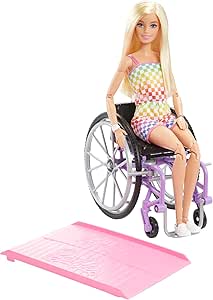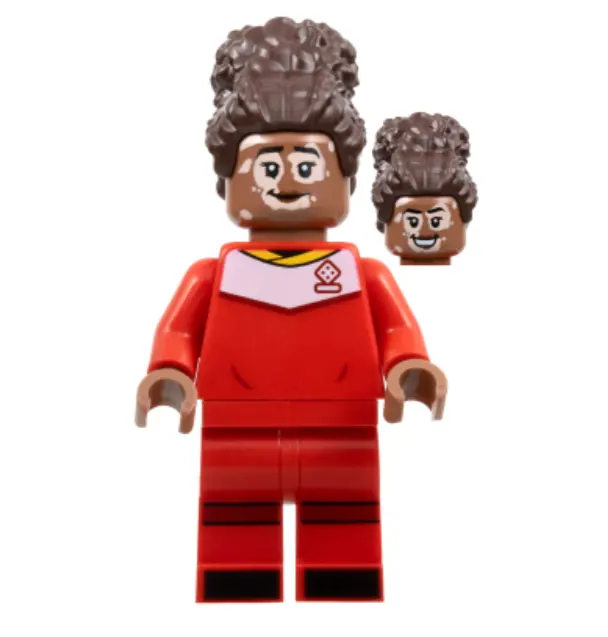Every child deserves to have a toy that looks like them (whether they have a different skin colour, disability or something else that makes them a little different from’ average’ children).
When I was working as a registered child minder I had dolls with varying skin tones ( black ,white and yellow) in my play room as well as dolls with tradition costumes: Indian and Chinese. and a few multi cultural dressing up outfits.
I also borrowed a down syndrome doll from the toy library as I was caring for a child who had the condition more here
More recently major toy manufactures have caught onto how important these inclusive toys are: Mattel have made a blind Barbie who comes with a cane that can move in a swooping motion, as a blind person would use i and ta braille set, plus Braille on the dolls packaging.

They have also come up with a disabled doll who comes with a wheelchair and ramp.

Playmobile and Lego are also part of this revolution; they sell sets with ramps, lifts and accessible bathrooms. a paralympic javelin thrower with a prosthetic limb and accessories like walking sticks,
Lego have figures with vitiligo, ADHD and Down syndrome, figurines in wheelchairs and Braille sets.

Not only do these toys normalise difference, they also dismantle stereotypes of being disabled.
A new company have come up with a doll with a hot pink cochlear implant and a short statured doll.
Not only do these toys help children who have such conditions, they also bring awareness to able bodied children.
I have written an earlier post on inclusive toys here
And another on raising awareness of disability here
As always questions and comments are welcome.
Until next time.
Karen
x
Discover more from The Next Best Thing To Mummy
Subscribe to get the latest posts sent to your email.
Yes, I am truly glad that the toys are being made to represent a diverse culture and abilities. Thanks for sharing @ #WednesdayLinkUpParty
Thanks for leaving your thoughts, Annette